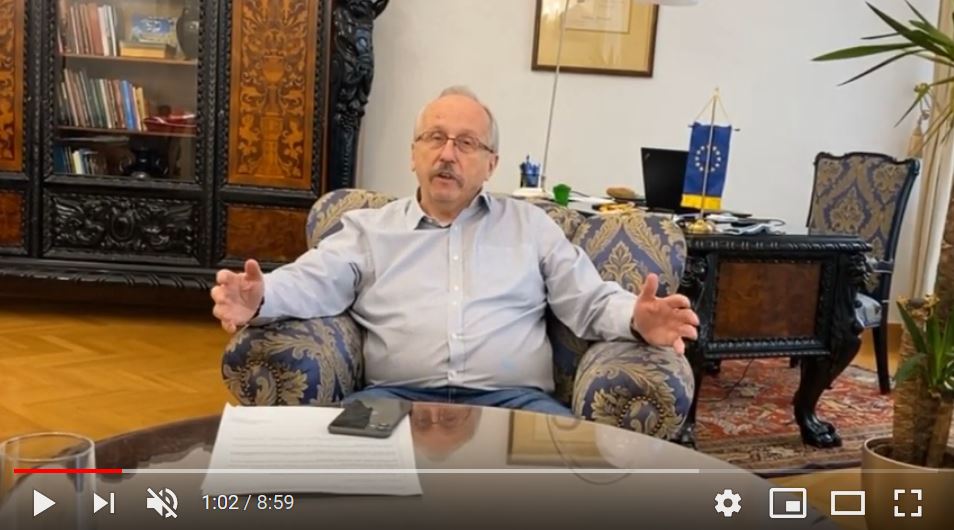
Located in the centre of Budapest and known to be one of its liveliest areas, in particular thanks to its thriving nightlife, the Hungarian capital’s 7th district has recently joined Efus. We have met with Mayor Péter Niedermüller, formerly an MEP, who was elected at the district council in 2019.
[Watch the full lenght interview here]
Why did you choose to join Efus?
Péter Niedermüller: We are very happy to become part of a large international network in order to exchange experiences and good practices with our European peers and have the opportunity to attend conferences and meetings. I’m a big fan of European cooperation so these exchanges have immense value for us.
What are your most pressing security issues? Do you have a specific crime prevention strategy?
As Budapest’s so-called “party district,” our main issues are drugs and prostitution, which are in part linked to nightlife, as well as domestic violence. We do not have a formal document expressing our crime prevention strategy, but we do work hard with local NGOs and the local police to prevent crime. This said, the pandemic has changed everything: the restaurants, bars and nightclubs cannot operate anymore and the local nightlife has all but disappeared. This obviously has had an effect on crime, which is much less prevalent now. However, the prevention of domestic violence and violence against women remains a priority.
What local initiative would you single out as particularly interesting for other Efus members?
When we took office a year ago, we created a working group with local NGOs and residents to try to find common solutions to the neighbourhood’s problems. Many ideas were proposed and we were planning to implement them just when the pandemic broke out. It is a good example of participation and local democracy, which was all the more needed and fruitful that we do not receive much support from the central government.
Now, our most pressing issue is to revitalize a district that has been hard hit by the pandemic. There is no nightlife, no tourism, no restaurants and bars… our local economy is dying and we have to find ways to bring it back to life.
As an MEP, you were a member of the parliamentary Committee on Civil Liberties, Justice and Home Affairs (LIBE). What role do you think local authorities can play in promoting the respect of human rights and non-discrimination?
Our district council consistently promotes the rights of all minorities, including the LGBT community, as well as gender equality. As you know, there is a lot of political conflict in Hungary around these notions, but even though we are a very small district, we stand our ground and make our voice heard.




